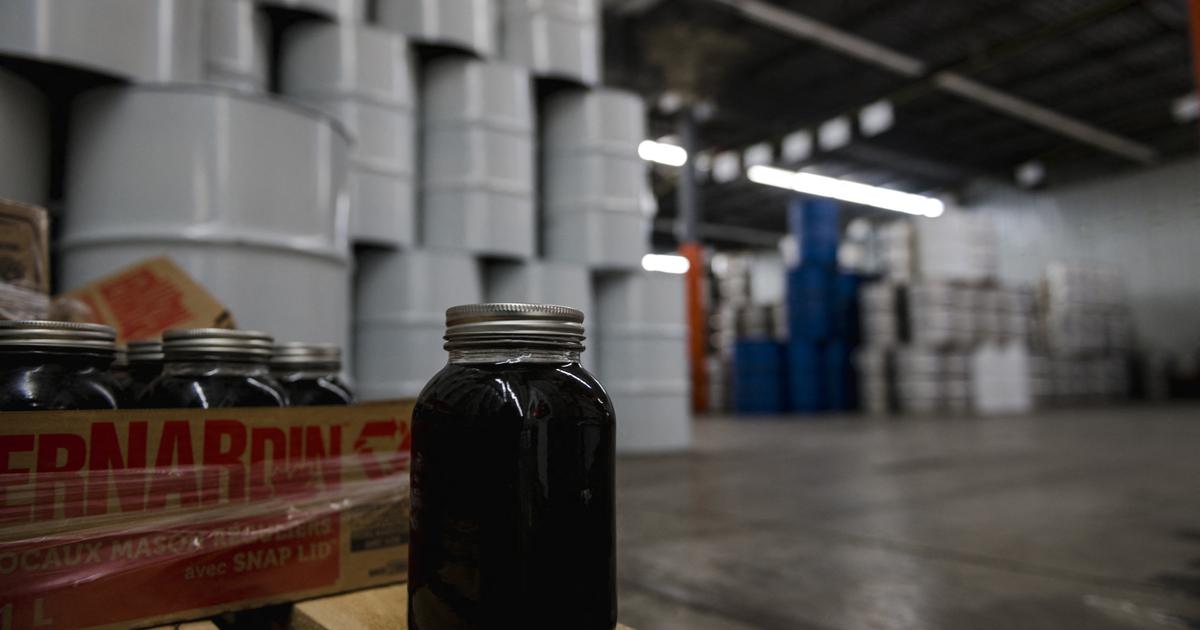Ecuador was one of the smaller partners of the Organization of Petroleum Exporting Countries, but decided to leave the conglomerate two years ago now. He did not want to submit to the crude production cuts that had been agreed upon when the country's coffers needed more revenue. That urgency for fresh resources is still in force and the new president Guillermo Lasso arrived at the Carondelet Palace with plans to double the current extraction of barrels. This strategy arouses, on the one hand, skepticism in the professional oil world, since it requires attracting billions of investment, and, on the other, it raises the alarms in the environmental groups of the Amazon.
Of the almost half a million barrels that the Andean country takes out of the subsoil every day, the Government aspires to have one million at the end of the mandate to be able to balance the prolonged fiscal deficit.
For Ecuador to increase, to double, oil production and export must inevitably expand the extraction frontier.
Especially in the southeastern Amazon area, the least exploited.
Lasso has admitted this, although he has repeatedly emphasized the message that start by improving the performance of existing wells.
More information
Guillermo Lasso's reforms collide in the Ecuadorian Congress
The new president of Ecuador will try to alleviate the economic crisis by lowering taxes
The intention to open new extractive gaps in tropical and Amazon forests has generated a first reaction of rejection. "The plans in the center and south of the Amazon, in the provinces of Pastaza and Morona Santiago, imply sacrifice in the wealth of the country: in biodiversity and in Amazonian forests with an excellent state of conservation", reproaches Mario Melo, legal advisor of the Pachamana Foundation, which also recalls the experience that the indigenous peoples of Ecuador have in resisting, even in court. “In those territories they want to access, seven indigenous nationalities live. Although not all areas are protected, they are indigenous territories and the law grants them the right to be consulted before any activity. But this is a right that has been historically unobserved ”, he adds.
That is why President Lasso measures every word in his announcements about his oil policy when it comes to justifying his intention to expand the business trying not to exacerbate environmental criticism. "We cannot be at the extremes," he said in an interview for a local media, "neither a wild extractivism nor a conservatism that limits our development possibilities."
That philosophy is already on paper, in a presidential decree published in July, which relaunches national oil activity to attract private investment in the face of declining barrel extraction figures. When Ecuador's departure from OPEC was announced, the national coffers counted on the proceeds from the sale of about 540,000 barrels a day. A year later, in October 2020, they had already fallen to 508,000 barrels. And now, when the Government speaks of increasing production by 8% between now and December, only 473,000 are extracted per day, according to official June statistics. The Minister of Energy, Juan Carlos Bermeo, urges to take advantage of “today” the interest of the private sector and foreign investment in the oil industry and not wait for “tomorrow”.
Join EL PAÍS now to follow all the news and read without limits
Subscribe here
With government calculations, Ecuador could cover its annual fiscal deficit of 7,000 million dollars and even reach a surplus if, at a price of 50 dollars per barrel, it meets the goal of doubling production that has been stagnant for two decades.
But it is precisely the lack of resources one of the realities that stands in the way of that goal.
To improve the performance of old wells and open some 2,000 new ones, the country needs to invest billions that can only come from the private sector.
Hence, the new decree includes tax exemptions and modifies the type of contract with private oil companies: from service to participation. Broadly speaking, companies that operate in Ecuadorian wells and that now deliver all barrel production in exchange for a fee for their services can migrate to a model where the State and the company participate in the benefits - in an agreed percentage - from the crude that they take out of the subsoil. That change, interprets the Government, will be more attractive for the arrival of investors.
"The decree only addresses the fiscal aspect, it does not even speak of oil as an energy issue, nor does it measure its impact in 54 years of extractivism," asks Alexandra Almeyda, from Acción Ecológica. The biochemist and coordinator of the oil area in the environmental organization discredits the official plans for being "impossible." There is talk, he explains, of starting to do fracking in Ecuador. “It has never been done, it is impossible and it has terrible impacts. The same with the goal of producing one million barrels: the country does not have the infrastructure to transport that quantity and it is unthinkable to build a new oil pipeline ”.
Regarding the expansion of the extractive frontier, Almeyda denounces that they want to get into protected areas. In fact, it is official that in the second half of this year two drilling campaigns were planned in the already exploited fields of the ITT (acronym that refer to the Ishpingo, Tambococha and Tiputini deposits), in the Ecuadorian Yasuní reserve. "They have plans in Ishpingo, in the buffer area of the Yasuní intangible zone", questions the representative of Acción Ecológica, who adds: "This shows the incoherence of President Lasso who in April, in the middle of the electoral campaign, said that they would not exploit protected areas and that they would not do it without consulting the communities ”.
Subscribe here to the
EL PAÍS América
newsletter
and receive all the informative keys of the current situation in the region.









